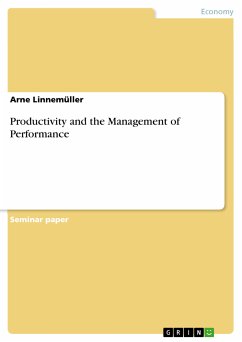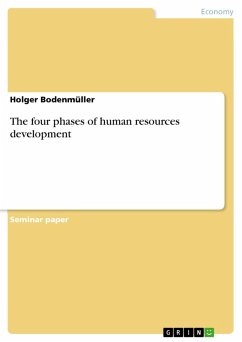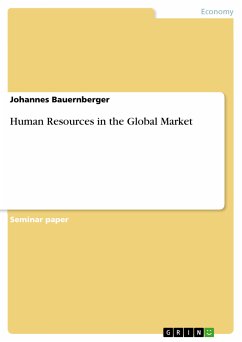Seminar paper from the year 2005 in the subject Leadership and Human Resource Management - Miscellaneous, grade: 1,7, University of KwaZulu-Natal (South Africa), course: Human Resources 230, language: English, abstract: The term productivity has been used to refer to individual groups, organisational units, entire organisations , industries and national economies. Today, the majority of definitions say that productivity is a measure of outputs divided by inputs. For instance, inputs can be raw materials, energy, etc, whereas outputs can be furniture, cars, services etc. With regard to Human Resource Management the main interest lies in the invested labour and capital in relation to the units produced. By measuring the productivity of an organisation the achieved efficiency can be found out and will show how effectively the invested resources have been used. Generally it can be stated that the higher the ratio, the more efficient are the used inputs. From a business point of view the main organisational goal is to reduce costs until only unavoidable costs remain. Thereby it is essential to realise that an appropriate measurement system in every organisation is crucial. In contrast to productivity, performance refers to the output of an individual employee. The achieved output is compared to determined standards the worker is expected to meet. The units of the standards depend upon the nature of the job and the more complex the job the more difficult it gets to measure the performance. For these more complex jobs performance appraisal systems have been designed which will be discussed later. For instance, p ossible criteria to measure the level of performance of more simple jobs can be the number of produced products, the number of rejects or the wastage of raw materials. However, quantity, quality and time are indicators in any case to measure performance.
Dieser Download kann aus rechtlichen Gründen nur mit Rechnungsadresse in A, B, BG, CY, CZ, D, DK, EW, E, FIN, F, GR, HR, H, IRL, I, LT, L, LR, M, NL, PL, P, R, S, SLO, SK ausgeliefert werden.









